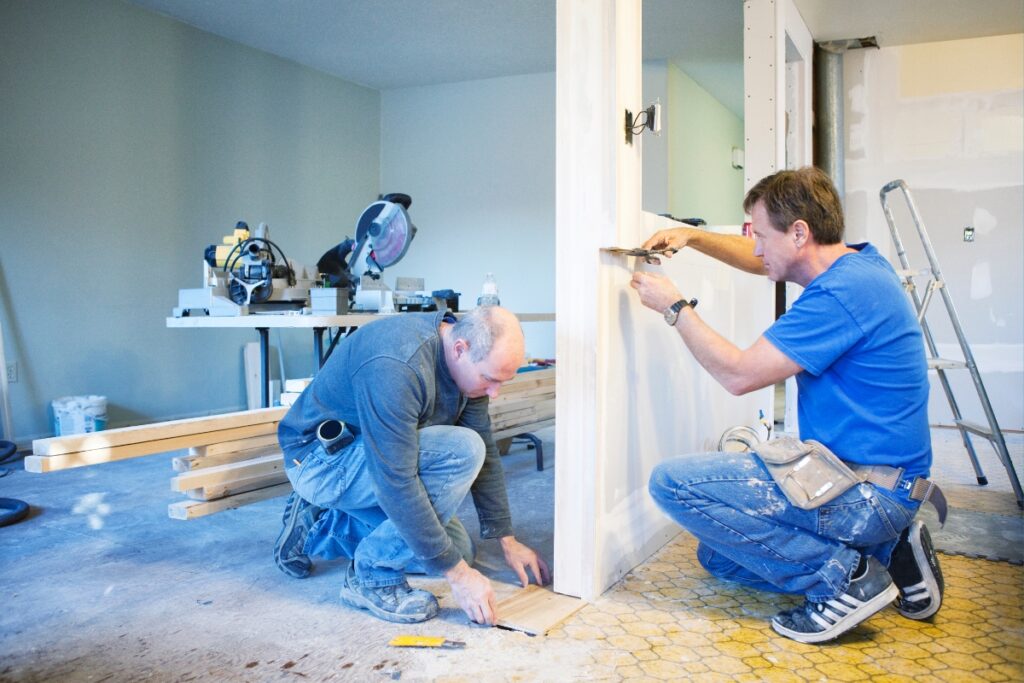This article, written by Holly Oddo from Mahoneys, is about the legal considerations and approvals required for renovating a lot in a community title scheme.
It is common for home owners and investors to want to improve the use and value of their lot by renovating their property.
However, before you take steps to renovate your lot in a community title scheme it is crucial that you consider the points below.
A failure to do so could result in additional costs, delays and disputes. In some cases, the owner can be required to return a lot, at their cost, to its original condition.
What do the by-laws say?
Firstly – you should review the by-laws that exist for your scheme. The by-laws are ordinarily found in Schedule C of the community management statement.
If the by-laws require you to obtain the approval of the body corporate then you will need to submit an application for the committee to consider and approve.
The application should include a proposed motion for the body corporate to consider and sufficient detail of your proposed renovations, such as plans and specifications. The body corporate may also impose reasonable conditions on your application, including (for instance) a requirement that any works are carried out by suitably qualified persons and in a manner which does not create a nuisance or unreasonable interference to other lot owners at the scheme.
Separately to body corporate approval, a lot owner may also need to obtain the approval of the local authority to proceed with renovations. A lot owner may require town planning and certification advice in this regard.
Do the works impact on common property?
Secondly – you should consider whether the renovations affect common property. It is important to recognise that in a scheme created pursuant to a building format plan of subdivision, common property may include the exterior of the building (such as the outside of doors, skylights or windows) and exclusive use areas.
If your renovations:
- affect or dispose of common property; or
- permanently occupy common property for your sole use and enjoyment, then a higher threshold of approval may be required.
A disposal of common property may take place where (for instance) you decide to install a skylight in the roof of your lot which requires the removal of block wall on common property.
An occupation of common property may take place where (for instance) you build a deck that encroaches onto common property.
If your renovations:
- affect common property – the body corporate will need to pass an ordinary resolution at a general meeting, if the renovations:
- have an installed value of more than $3,000;
- detract from the appearance of a lot or common property; or
- the committee is satisfied the use or enjoyment of the improvement will promote a breach of an owner’s duties as an occupier.
- dispose of common property – the body corporate will need to pass a resolution without dissent at a general meeting.
- permanently occupy common property – the body corporate will need to grant a use right over the area, such as exclusive use by resolution without dissent.
A resolution without dissent is a relatively onerous requirement to meet, as it means that no lot owner can vote against your application. Adjudicators have, however, previously required lot owners to remove improvements which permanently alienate common property, without any use right in place (City Views [2023] QBCCMCmr 379). This is why it is important that you obtain the correct approvals for your renovations. Just because your neighbour had the committee sign off on their renovation does not mean that if you follow suit it will be approved properly.
Do the works impact on body corporate insurance?
Thirdly – you should provide details of the nature and value of the renovations to the body corporate, if the renovations are likely to increase the insurance premium for the body corporate. In those circumstances, you will be responsible for any increase to the body corporate’s insurance premium and the ongoing maintenance of the renovations.
Holly Oddo Mahoneys E: hoddo@mahoneys.com.au P: 07 3007 3753
This post appears in Strata News #720.
This article has been republished with permission from the author and first appeared on the Mahoneys website.
Have a question or something to add to the article? Leave a comment below.
Read next:
- QLD: Owner Improvements
- QLD: What are the Body Corporate Requirements When Renovating Your Apartment
- QLD: Q&A Authorising Common Property Changes or Improvements
Visit Maintenance and Common Property OR Strata Legislation QLD.
Looking for strata information concerning your state? For state-specific strata information, take a look here.
After a free PDF of this article? Log into your existing LookUpStrata Account to download the printable file. Not a member? Simple – join for free on our Registration page.
